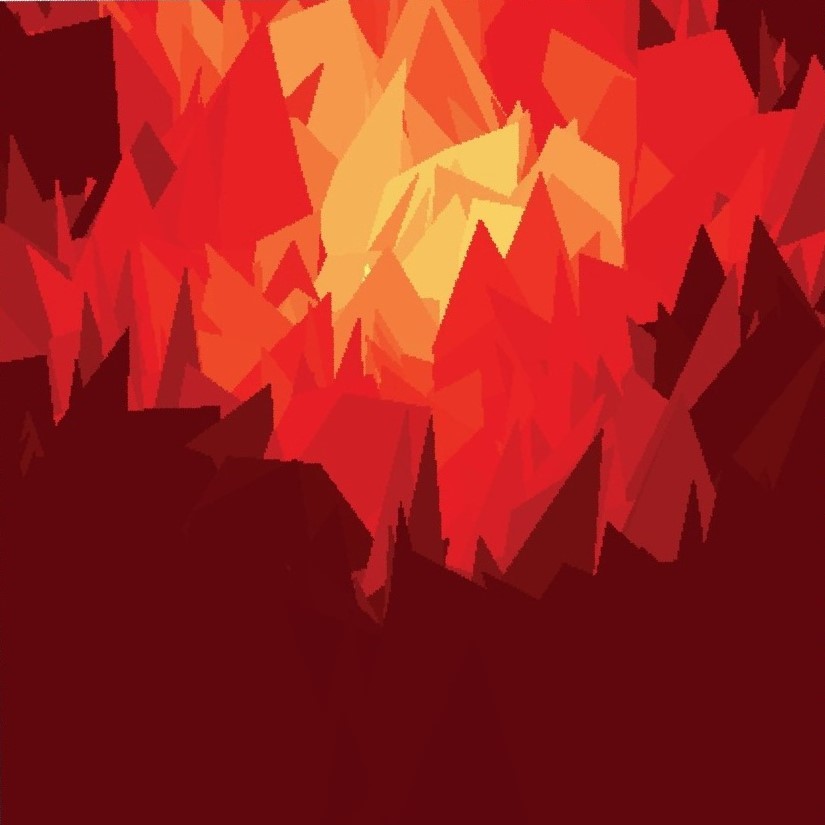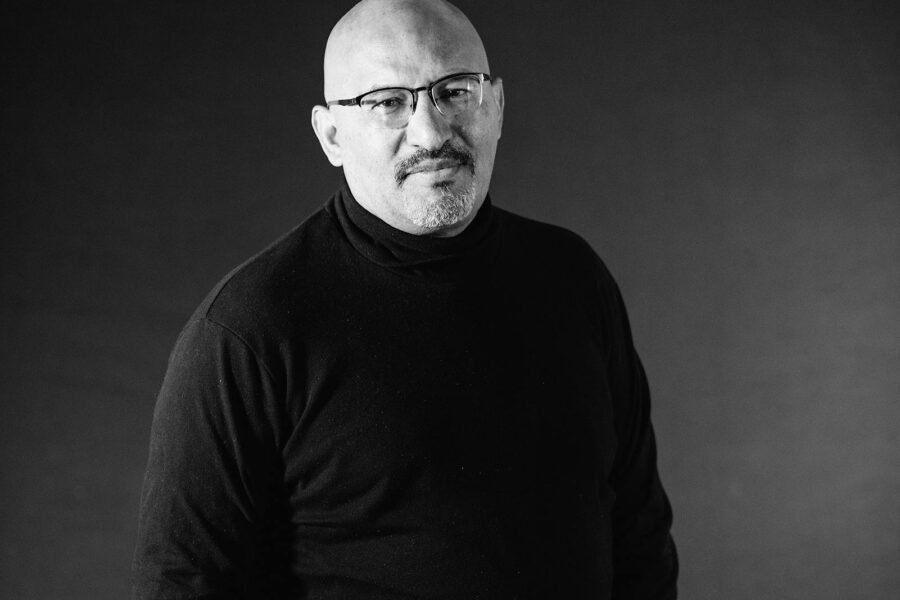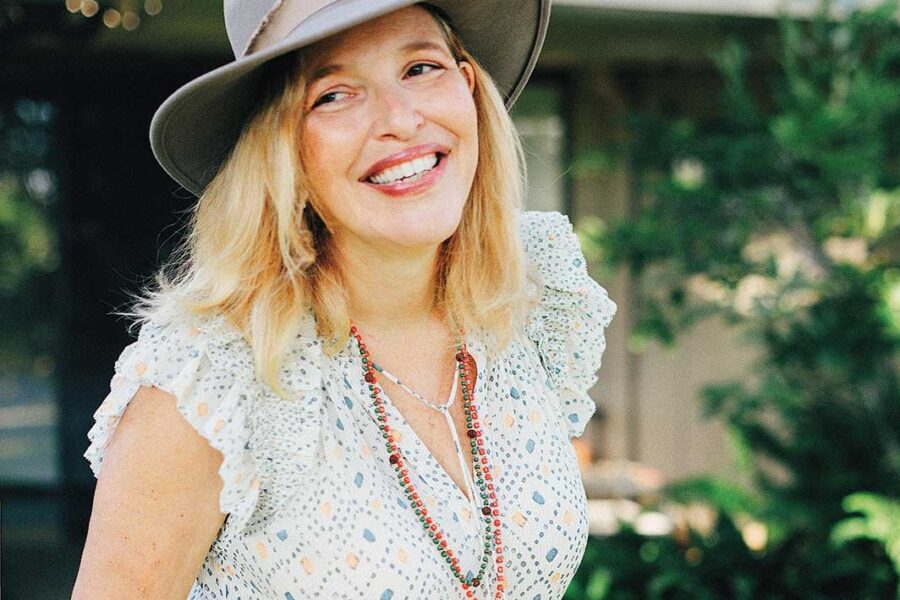An excerpt from Dr. Alexandre’s 2020 Commencement speech delivered to the Graduating Class of the PhD in Leadership and Change Program.

I take the title from both John Milton’s Paradise Lost and from culture critic Rebecca Solnit’s 2010 book of that same name. As Antiochians, we have a responsibility to win those victories for humanity. That’s the building paradise part. And every Antiochian has a role in that construction.
But before we get to the building part, let me talk briefly about the “hell.” The past months have been overwhelming. I am sad, in disbelief, full of rage.
I alternate between fear and despair over the ravages of this pandemic.
I would love to be able to say that this horror took us by surprise and that in the face of that, we are doing our very best.
In fact, we aren’t doing our best. And, in fact, it was not unexpected.
How blissfully naïve I was.
Among many, social critic Mike Davis wrote in The Monster at Our Door how climate change, industrial poultry farming, underfunded and inequitable health care systems, the absence of a national will, and the failure of global cooperation, were dooming us to a pandemic of planetary proportions.
They knew it was coming.
It didn’t have to be like this.
The well-crafted pandemic plans of the Bush and Obama administrations were ignored, resources stripped.
When did science become the enemy?
When did lies become accepted as truths?
When did life-saving masks become a statement of partisanship?
Let’s recognize this hell.
Let’s recognize that Black and Latino communities suffer disproportionately higher rates of infection and death.
Let’s recognize this is not the time to further reduce this country’s health care safety net
nor withdraw from the World Health Organization.
Let’s recognize the failure of our government to assume its paramount responsibility to care for the welfare of its people.
Let’s call out the failures, whether due to ignorance or malice. The are unacceptable.
The coronavirus didn’t break the United States, but it revealed what was already so broken.
And, all of this in the midst of daily assaults on our democracy.
I am frightened by its fragility.
How blissfully naïve I was here too.
As flawed as our nation’s history is, and as much as I have protested throughout my life against societal wrongs, I somehow believed
That our checks and balances were strong enough to withstand evil.
That our media was valued as a necessary 4th Estate.
That whistleblowers were protected.
That loyalty was to this country’s aspirational values and not to a wannabe autocrat.
That collaborators complicit with abuses of power were spineless enablers I read about in history books and not found in the current halls of Congress.
Scholars tell us that democracies no longer end with a bang—like a revolution or military coup—but with a whimper,
the slow, steady weakening of critical institutions like the judiciary and the press,
the relentless repetition of lies until they become accepted as truth,
the scapegoating of the other,
and labeling those who protest as enemies of the state.
We see it happening before our eyes. This is how democracies die. It is a form of hell.
Viktor Frankel, Holocaust survivor and renowned author of Man’s Search for Meaning, tells us that how we deal with the darkest times, the toughest parts of our lives, shows who we are.
He called on people to strive toward a ‘new humanity,’ even in the face of losses and heartbreaks of unimaginable proportions… he talked of purposeful living.
Ahhh, glimmers of hope.
When hundreds of thousands of protesters of every color took to the streets in cities and towns large and small across the
country to demand justice, my spirits lifted.
That call was powerful and rocked the world.
When symbols of slavery are brought down across this country, at military installations, NFL fields, even at NASCAR, my spirits are lifted.
When I see a new generation speak out and rise up, I see a future.
It is a generation that is THE most racially and ethnically diverse generation yet. That gives me hope.
People of color now comprise nearly 40% of the US population.
Millennials and Gen Zers are the largest age cohort in the country.
When socially moderate and progressive-leaning whites are added to the mix, this population IS the New American majority.
And this new majority JUST SAYS NO to hell.
Crises of the magnitude we are living through can be opportunities.
Rebecca Solnit notes the emergence of trust and creativity in the face of disasters as ordinary people exercise their capacities for altruism and solidarity.
Such moments provide glimpses not merely of the destruction but also of solidarity.
Perhaps that helps explain the spontaneous groundswell in the aftermath of George Floyd’s murder. In the throes of crises, strangers united to restore community and protect life.
Solnit shares optimism that in the aftermaths of crises, a civic temperament drives us toward meaningful community.
That gave me hope.
In Upheaval, Jared Diamond unpacks how nations successfully heal from disasters. If our country is going to hell in a handbasket, he lays out with historical brilliance how we can change course.
Of his 12 factors, a few resonated with this notion of building paradise.
First, countries that make it through crises successfully come to grips with their evil past, as Germany did with Nazism and as we must do with
our legacy of white supremacy and the brutality it inspires.
A country must be willing to pass judgment on itself in order to change course. It is time for that reckoning, not to go backwards but to be able
to go forward.
Another of Diamond’s essential factors is the imperative for selective change.
Nations that come through crises and heal are clear about what needs to be changed. He calls out the litany of warning signs IN the US that need to change, such as growing inequality and voter suppression.
He tells us there are ways forward, but this fleeting opportunity can be squandered. The window is closing.
Yet he, like Solnit, still finds hope.
“For nations as for individuals, there is much inertia and resistance to overcome in normal times. Something big and bad needs to happen to motivate us more than slowly developing problems.”
Well, we have the really big and the really bad.
In a paradoxical way, THAT gives me hope.
We have this moment.
We have a once-in-a-lifetime or a once-in-a-century opportunity to not just rebuild failed systems but to build anew.
Imaginative, Just, Fair, and Full of Community and Care.
A paradise.
To make a sustainable green economy that protects the planet for generations to come.
To provide a basic universal income for all adults and their families.
To offer healthcare from birth to death.
To make broadband a right.
To level the playing field of access to meaningful lives and livelihoods regardless of race, class, gender, religion, identity, disability or religion.
To make quality schooling public and free and civic.
To make education the bedrock of democracy, in the legacy of Antioch’s founder, Horace Mann.
I am hopeful that NOW is the Time.
So, what is our role as Antiochians?
What does it mean to ‘win victories for humanity’ in the midst of this time of reckoning?
How do we incorporate Antioch’s mission to further social, economic, racial, and environmental justice into how we educate democratic citizens engaged in building a thriving, inclusive, sustainable future?
In Tears We Cannot Stop: A Sermon to White People, sociology professor and ordained minister Michael Eric Dyson preaches about racism and racial justice to his “beloved” readers.
He eloquently concludes,
“The time is at hand for reckoning with the past, recognizing the truth of the present, and moving together to redeem the nation for our future.
If we do not act now … there may well be no future.”
So how do Antiochians
reckon with the past,
recognize the brokenness of the present, and
engage with tools of reason, evidence, research, and discourse to build that future?
There is no one single path for each and every one of us. But here are some of my final thoughts about what we can do as Antiochians!
I’d encourage us to be selective about our studies and our focus. I don’t mean selective as partial and incomplete. I mean it in the sense of Diamond: be purposeful in one’s choices.
I mean selective in the way Naomi Klein urges humanity to move in new directions because the transformative moment is here, and it requires that we ground whatever we do next in the valuing of community and care.
Antioch faculty and students need to intentionally seek out and help tell the stories of those who are underrepresented, marginalized, and silenced.
I’d encourage Antiochians to use their public voice to challenge the naysayers and raise up the dreamers.
To Question power and privilege, one’s own and that of others.
To Illuminate the impacts of inequities in the communities where we live and
bring forward the broadest and richest diversity of experiences in the organizations that we lead.
We need to study, research, and practice ways to build resilience in communities because it is these very communities that have grassroots ingenuity to address crises at the local level to build a humane civil society.
We need to shift focus from the practice of individual leaders to the complex bonds of togetherness. Let’s put our attention not on heroic
individualism and hierarchies of control but rather focus our attention on collaboration, solidarity, relationship, and care.
We need to be powerful advocates to “rethink and redeem” leadership.
Unleash it from hierarchical imagery and male-dominated constructs.
Let’s imagine leadership that is anti-racist and pro-inclusive.
Let’s not define leadership merely by competence,
Assess it by expertise,
Evaluate it by technical prowess.
Let’s judge leadership by ideals and ideas.
Let’s talk about the future not just about policy,
Let’s talk about what’s right and just, not just what’s realistic,
Let’s talk about values and visions, not just strategies and actions.
Let’s find hope.
So, as Antiochians, we have a role to build paradise.
Be selective and intentional in the change you fight for and lead.
Be purposeful in the study, research, and practice to which you invest your time and energy.
Be public and bold in your voice. Silence is not an option.
FINALLY, VOTE. We must choose the vision we want for our country and world—we have the opportunity to fight for paradise.
There is still time.


